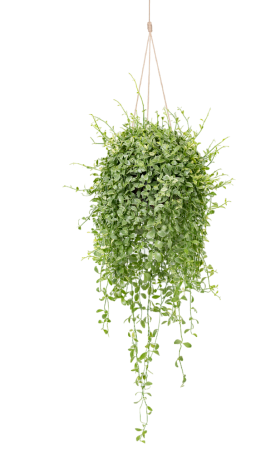How to deal with body odor, with a focus on charcoal!

How to deal with body odor, with a focus on charcoal!
True (but embarrassing) story:
One day while renovating a gutted house in post-Katrina New Orleans, I stood in the checkout line at a home-improvement store with only a pipe about 4” long in my hand. Suddenly I was aware of an odor. What is that stink? I slowly (nonchalantly) looked around to see from where (or who) it might be coming. The guy in front of me looked pretty clean, and the woman behind me was not even that close. A minute later when I moved forward, it dawned on me: the pipe in my hand was channeling the stink from my workboots up to my nose. How disgusting! No wonder that lady wasn’t coming any closer…
We all have odd smells that cause us extra time and effort to remedy or disguise. A lot of people have bad breath and underarm odor problems. Some have flatulence issues, and some have stinky feet issues. Of course it is best to try and remedy the source of the problem medically or holistically, but sometimes it can take years. In the meantime, we want to help with getting back to normal (or better than normal!) with technology. We’re not fans of “masking” the odors, as some products do with heavy fragrances. Let’s get to the odor-causing bacteria and trap them before they make a stink!
Activated charcoal is different from the barbeque grill variety because a treatment of gasses at high temperature is applied to “activate” it, or create extra surface area for adsorption (causing toxins to adhere to the surface of the charcoal). It has long been used to filter odors from the air, as well as contaminants from water (for more info, check out our post on de-stinking your home with carbon filter media!) With new technology in fabrics and materials, people are finding more and more ways to use it in and around our bodies. Here are some of the ones we’ve found.
- For those suffering from IBS, Crohn’s Disease, and other gastrointestinal conditions, malodorous flatulence is a terrible problem. It causes social anxiety and can cause those who have it to lose relationships, jobs, and mobility (not wanting to travel or go outside).
- Shreddies is a flatulence-filtering underwear that has carbon-activated cloth sewn into them, which can be washed and reused many times. They also sell pyjamas, pants, cushions and bedding.
- Although not infused with charcoal, I felt I had to say that PooPourri is actually an all-natural product that fills the air with a fresh scent, and forms a protective film on the surface of the toilet water, so that bowel movements are trapped below until you flush. Tested by the Canadian Gastrointestinal Society, the products were given a good review. You can make your own “pourri”, too.
- For feet, odor normally occurs with excessively sweaty feet, so it’s important to wear the right socks (to minimize moisture) and get those shoes dry quickly after you take them off. Here are some great products to try:
- The right socks: socks are not only your feet’s first protection against abrasion, but they also help your feet regulate body temperature and they control moisture. If you have been reading our website, you’ll know we are big on moisture control as a way of mold control! Therefore, it’s important that you wear the right type of socks for the activity and shoes, and if you have particularly sweaty feet, keep several pairs of socks on hand to change them throughout the day if necessary. Here is an excellent article on how to choose the right socks, and another with tips on keeping your feet healthy. For socks woven with charcoal, visit charcoalhouse.com.
- Aerated shoes: As with other moisture problems in our homes, the best odor prevention is ventilation! Here is a list of stylish shoes that provide plenty of ventilation.
- Insoles: The right insoles can fight odor all day long, as moving your feet will naturally cause air to move in and out of your shoe, and carbon in the insole will filter it. Many positive reviews for Dr. Scholl’s make them the best we’ve found.
- Sprays: If you can’t use a full insert in your shoe (for form-fitting high heels, for example, try out this natural spray that uses essential oils for great odor-fighting power.
- Boot/shoe dryers: This review is a great source to find the right boot dryer for you and your household.
- Shoe deodorizers: After drying, keep these inserts in your shoes to keep them smelling fresh.
- Homemade/ Economical solution: This tip from VeryWellFit.com is super useful, however instead of baking soda, substitute activated charcoal powder for even more power: pour a bit of activated charcoal (or baking soda) into 2 coffee filters and tie them with a breadbag tie or rubber band, and leave one in each shoe overnight. This allows the charcoal or baking soda to work its deodorizing magic without building up or staining your shoe. The charcoal powder has many more uses in your home, too, check out our other post on Activated Charcoal!
- Underarm odor is actually caused by bacteria on your skin that breaks down protein in your sweat into acids. So, the odor is not caused by the sweat itself, but the byproducts of the bacterial reaction to it. Some people suffer from axillary hyperhidrosis, which is overactive nerves which cause them to sweat up to five times more than normal to regulate body temperature. Traditionally deodorant has been the main solution, and there are others:
- This review is by a natural deodorant devotee, and she already had her own favorite deodorant before charcoal was introduced. Given this, she said that the charcoal version by Schmidt’s ties with her favorite regular natural deodorant! (If you are allergic to magnesium, which can be absorbed through the skin, you will need to do a bit of research because all the deodorants I found used a magnesium formula!)
- Thompson’s Tee’s make sweat-proof undershirts, which when paired with a natural deodorant, can vastly improve life for many who over-sweat. Their tee-shirts are made with Odor Shield™ technology, a natural, non-toxic hydrogen peroxide-based solution. Odor Shield™ eliminates 99.9% of odor-causing bacteria in the fabric and stays put for at least 70 wash cycles. The articles on SweatHelp.org are super-helpful and discount codes are also provided.
- The folks at Lume broke through a barrier with their advertising regarding excessive odor in the groin area, and the obvious embarrassment that can cause. Their deodorants are not made with completely natural ingredients, nor do they contain charcoal, but they certainly started a trend of awareness and help for odor problems.
- Bad breath may have a slight reprieve in these days of mask-wearing, but in close contact without a mask it can still be offensive. Once again, bacteria is usually the cause of the condition, and it may lurk in the mouth (80%-90% of cases) or elsewhere in the body (10-20%). . There are medical causes of bad breath such as dry mouth, gum disease, a respiratory infection, diabetes, gastrointestinal disorder, or liver or kidney disorder. It’s tempting to use the basic alcohol-based mouthwash found in many stores, but this product is non-discriminatory in killing both bad and good bacteria, and can actually make you more susceptible to gum disease and other infections. (scientificamerican.com) When you’re trying medical treatment for the sources of bad breath, you can also dispel the odor by using activated charcoal:
- Charcoal toothpaste will bind food particles, a food source for bacteria in your mouth. It is also inert, meaning it will not change the pH balance in your mouth and make it difficult for good bacteria to live there. Although mainly sought for its tooth-whitening capabilities, charcoal toothpaste is anti-viral and anti-fungal and can help remove some of the bacteria that cause bad breath through adsorption. However, it can be more abrasive and if without fluoride, may increase risk of dental disease if used exclusively. (dental source) Here is a great review of charcoal toothpastes with different characteristics, ie., for fresh breath, for sensitivity, for whitening, etc.
- Charcoal mouthwash is safer than toothpaste as far as abrasion goes, and the natural varieties contain less or no alcohol, and no fluoride (depending on where you stand with fluoride, that can be a good or bad thing). Hello activated charcoal extra freshening mouthwash is a good choice because it’s vegan, gluten free, cruelty free and free from alcohol, dyes, artificial sweeteners/flavors, and SLS/sulfates.
- Activated charcoal in large doses has long been used as an anti-poison remedy, because it binds toxins in the stomach and helps your body flush them out before they are absorbed. However, emergency room (ER) doctors normally only give this treatment in certain types of overdose, and then only if it has been a recent ingestion (2 hours or less). Therefore, the average charcoal supplements, which are actually 100-200 times less potent than the ER treatment, are not clinically proven to help in “detoxifying” (Consumer Reports), and you should also note that charcoal can absorb healthy nutrients and prescription drugs, just as well as it does toxins! This one by Bulletproof seems to be used mainly against bloating and overindulgence, but technically it can’t do that if not taken soon after said “overindulgence”. If you are looking to cure bad breath, charcoal supplements are only shown to help with a rare source of bad breath called trimethylaminuria (study). For other non-mouth sources of halitosis, the best bet is to take a look at your diet and eliminate sugar and wheat from your diet, which can feed an overgrowth of candida yeast, causing the bad breath or odor in other parts of your body.(Reboot Health).
What is your favorite way to use the natural “freshening” characteristic of activated charcoal?

Photo by Jacqueline Day on Unsplash






